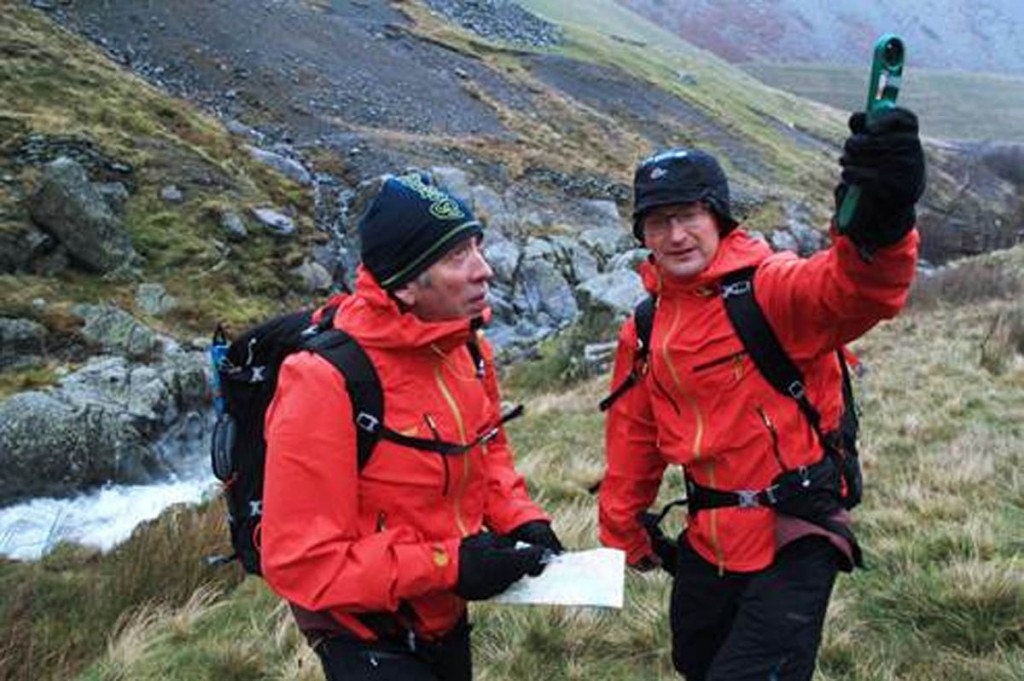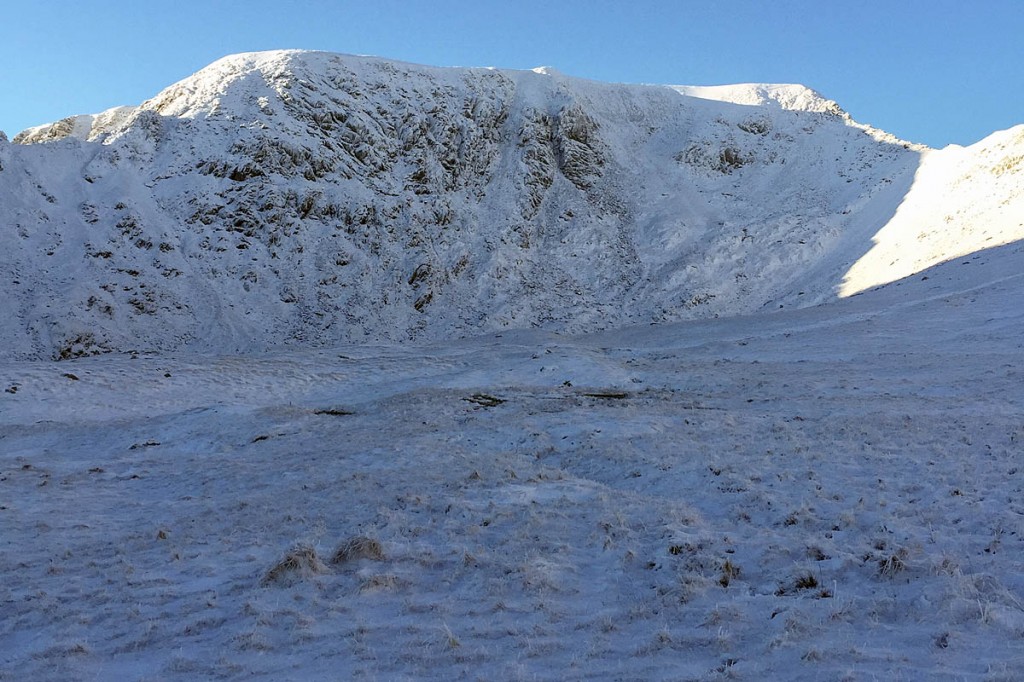The Lake District’s service to monitor mountain-top conditions has been extended due to the arrival of late snow this week.
The national park authority’s felltop assessors were due to hang up their ice-axes after Easter Monday, but will now continue for a little longer.
The assessors, Graham Uney and Jon Bennet take it in turns to man shifts during which they make the ascent of England’s third-highest mountain, Helvellyn, to provide real-life observations of weather and ground conditions.
On Wednesday, the temperature on the summit was -1.4C, with a windchill equivalent to -10.3C.
The assessor’s report said: “More snow has fallen over the last 24 hours and settled on ground above 350m, although it has already thawed during the day below 500m.
“Between 500m and 700m, the snow is soft, wet and thawing. Above 700m, snow coverage is extensive although the actual depth varies from little on windswept areas – such as parts of the summit plateau – to deep drifts of over 50cm especially on east- and north-facing slopes with a depth of over 10cm commonplace.
“The fresh snow is soft and wet; however, above 900m it can lie on top of old, hard snow and some ice. These two layers have not bonded and there was also between 5cm to 10cm of windslab again especially, but far from exclusively, on east- and north-facing slopes. As such, walkers should carefully assess the snow’s stability before climbing or traversing such slopes.”
The authority’s assessor said Striding Edge and Swirral Edge must be treated with extreme caution. “Both exits, especially Swirral Edge, consist of unavoidable, steep, deep snow and windslab over harder snow and some ice where a slip would have serious consequences.
“As such an ice-axe is essential for anyone attempting such routes and crampons should be carried in case harder snow is encountered, which it was on Wednesday.
“Today, several people were attempting the edges without the proper winter gear but were sensibly turning back.
“Should you spot people about to negotiate such routes without this equipment, please talk to them and ask them how they are going to stop themselves falling down an icy snow slope if they slip without an ice axe – such advice is appreciated.”
The assessor also pleaded with climbers to avoid gullies which are not in condition and are full of soft snow, to avoid damage to rare plants – and themselves.
The felltop assessors’ reports can be seen on the Lake District Weatherline website.

